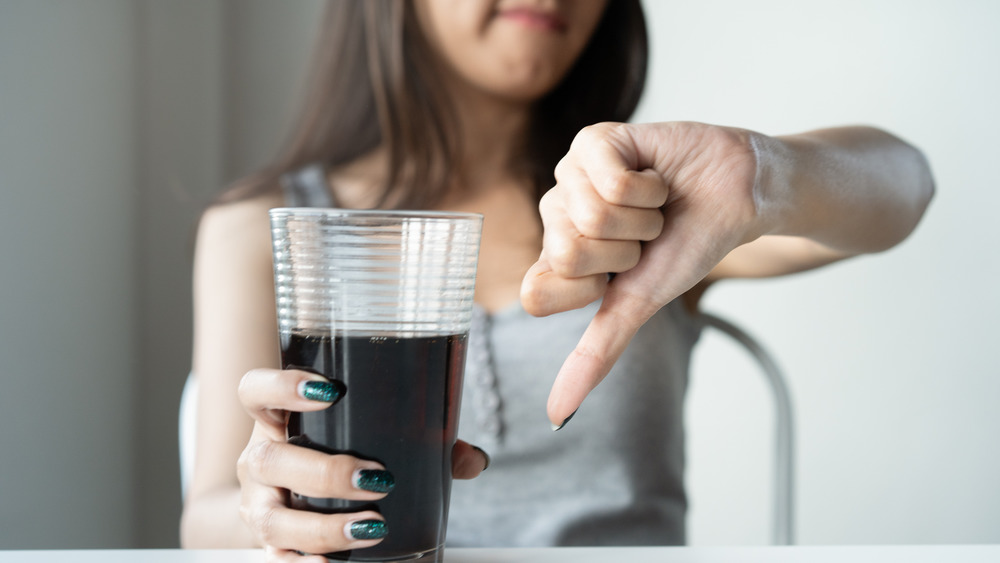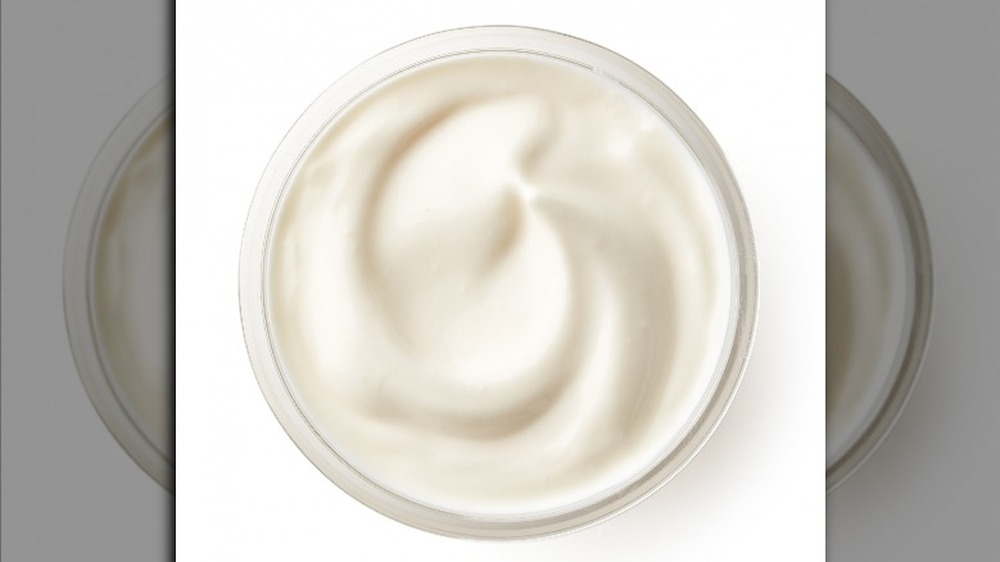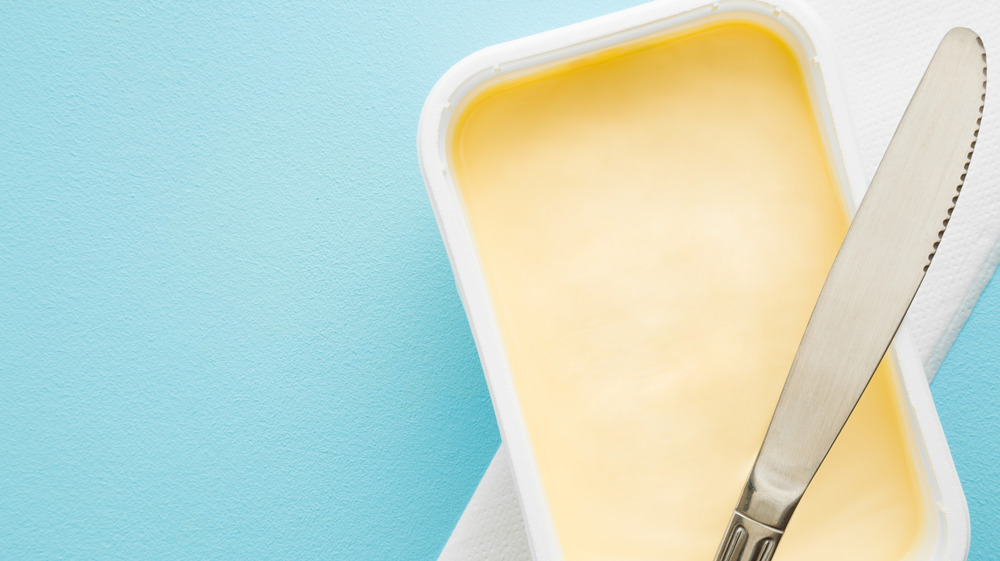So-Called Healthy Alternative Foods That Are More Likely To Kill You
While most of us don't exactly have the perfect diet — darn junk food, why must you be so tasty and addictive? One thing nearly everybody has in common, is a desire to at least try to eat better, healthier foods. Easier said than done, however, since in addition to our traitorous taste buds, we may not always be able to afford the healthiest foods or have the time to prepare them. Yes, it's much easier to stick to a diet and exercise routine if you've got a personal chef and trainer, not to mention when your multi-million dollar salary hinges on keeping yourself in shape.
Okay, these are known issues, and yet most of us soldier on, doing our best to elevate our eating habits when and where we can. One thing that we do need in order to succeed with this lofty goal, though, is sufficient information to make the best food choices. Sometimes, it seems, even food science lets us down. From time to time, new products are promoted as healthier options, only to be proven otherwise. One example would be low-fat foods, all the rage back in the 90s. Healthline says that many low-fat items are loaded with extra sugar or processed fats that do far more harm than good. We spoke with holistic health and nutrition expert Piper Gibson, AHND, TND, BCDNM, FDN-P and she warned us about three more types of not-so-healthy food substitutes we'd do well to avoid.
Diet soda can be downright dangerous
The appeal of diet drinks is easy to see. It tastes almost as good as actual sodas, but most can boast zero calories. You could drink Diet Cokes all day and theoretically never gain an ounce — but should you? No, absolutely not. For one thing, diet soda may not even perform its stated benefit of helping with weight loss. As Gibson explains, "Most diet soda contains Acesulfame Potassium or Ace K which is used as a sugar substitute," a substance that studies have shown "can alter the gut microbiome and increase glucose intolerance, leading to weight gain and increased risk of obesity."
What's more, Ace K, which is an artificial sweetener that has been approved by the FDA, is something that Gibson cautions "can lead to migraines, seizures, infections, abnormal neural development, certain endocrine disorders, neuropsychiatric disorders, and learning disorders in children." Yikes! Gibson also adds that consuming this additive on a long-term basis can lead to memory problems. "As we age," she says, "we all want a happy, healthy brain, and consuming diet soda may shorten the life of a healthy brain and body." Yeesh. We'll take a pass on that.
Cool Whip is a not-so-sweet treat
While whipped cream is super-yummy, it's also quite high in fat. When compared to Cool Whip, SOS Cuisine notes that it has nearly four times the calories, double the amount of saturated fat, and over six times the amount of total fat. So obviously Cool Whip would be the healthier choice, right? Wrong, wrong, wrong. Gibson tells us that Cool Whip is made up, in large part, of partially hydrogenated vegetable oils, these being trans fats that "increase the risk of heart attacks because they raise bad cholesterol and lower good cholesterol."
What's more, this whipped topping is sweetened with high fructose corn syrup. HFCS, Gibson says, can "impair fat oxidation in the liver, leading to weight gain, obesity, fatty liver, and insulin resistance." She says this substance also "raises glucose levels and, in turn, may also impact nutrient absorption in the small intestine." In other words, Cool Whip is another product that you should completely avoid. Otherwise, warns Gibson, "Eating products like Cool Whip might shorten your life."
Margarine is a nutritionist's nightmare
Believe it or not, margarine was at one time promoted as being a healthier, as well as a less expensive, alternative to butter. Cheaper it undoubtedly is, but better for you? Not so much. In fact, not even a little. Gibson says margarine, like Cool Whip, is also made from partially hydrogenated vegetable oils, so is equally heart-unhealthy. She also says that margarine contains polyunsaturated fats, something that can "alter the balance of good fat and bad fat in the body."
Butter, while a high fat product, does have some nutritional benefits as it provides a limited amount of vitamins A, E, and D. As Gibson points out, margarine is pretty much lacking in all of these nutrients. She also expresses some concerns about the genetically-modified crops often used to produce margarine, citing reports that GMOs may be tainted with glyphosate-containing herbicides that she tells us "may lead to cancer, altered gut microbiota, and increased risk of fatty liver." So, not much upside to margarine, then, apart from its budget-friendliness. As Gibson makes clear, "If you want to live a healthy life, ditch the margarine."



